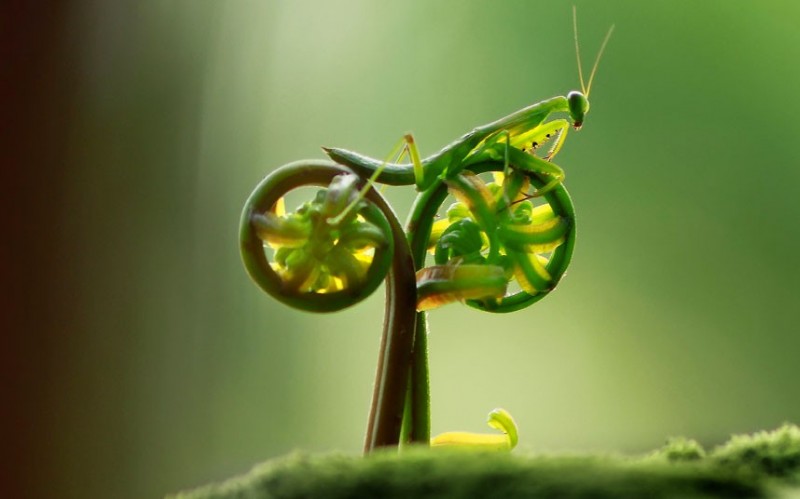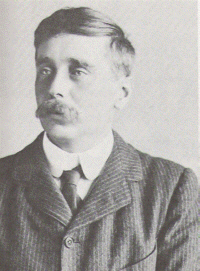from books under review, and from the world at large ---
that fascinate us, and
may interest our readers.
S. J. Perelman
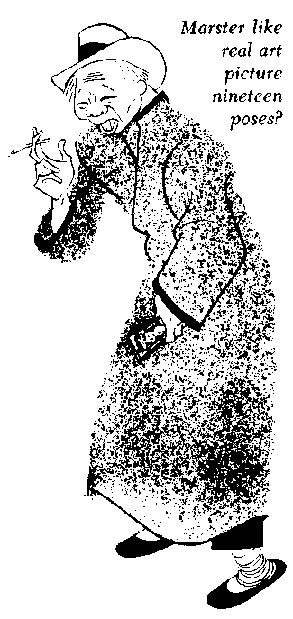
About midafternoon we traced our steps to the American Club, a pleasant establishment in Foochow Road made doubly delightful by the circumstance that it had the only heated bar in town. Five whiskey sours drove the chill from our bones, and we decided to have a drink. There then ensued a hazy interval during which I seem to recall the sound of a cupful of poker dice being thrown repeatedly against a board and a playful attempt on my part to comb Hirschfeld's beard with a back-scratcher.
From time to time strange faces swam into my field of vision; I remember a laborious, protracted recital by an UNRRA official of his difficulties in persuading the Chinese to eat canned peaches, but part of it was being given in Russian and some men were accompanying him on balalaikas.
It suddenly grew much colder and I found myself in a very dim night club, teaching an exophthalmic Hungarian girl the Cubanola glide. The next morning I felt remarkably listless and there was an outbreak of beef Stroganoff on my tie as though I were coming down with a fever, but these symptoms soon passed, and by noon I was able to keep down a little clear broth made of Angostura, lemon peel, and bourbon.
review
To Cybernetics
Gregory Bateson
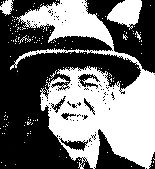
One of these groups of words was, The fathers have eaten bitter fruit and the children's teeth are set on edge.
review
The American Schools
H. L. Mencken
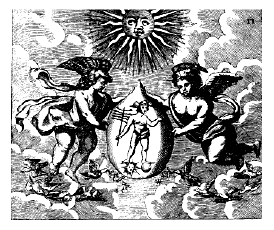
The aim of public education is not to spread enlightenment at all; it is simply to reduce as many individuals as possible to the same safe level, to breed and train a standardized citizenry, to down dissent and originality. That is its aim in the United States, whatever pretensions of politicians, pedagogues other such mountebanks, and that is its aim everywhere else.
If any contrary theory is cherished among us it is simply because public schools are still new in America, and so their true character and purpose are but little understood. The notion that they were invented by American patriotism and ingenuity, and go back, in fact, to the first days of the New England Puritans --- this notion is, of course, only hollow nonsense.
The early Puritan schools were not public schools at all, in modern sense; they were what we now church schools; their aim was to save young from theological heresy --- the exact aim of the Catholic parochial schools and the Jewish Cheder schools today. The public schools, which originated in Prussia during the Eighteenth Century and did not reach the United States, save sporadically, until the middle of the century following --- even in Masachusctts there was no Board of Education until 1837 ---, have the quite different aim of putting down political and economic heresy.
Their purpose, in brief, is to make docile and patriotic citizens, to pile up majorities, and to make John Doe and Richard Doe as nearly alike, in their everyday reactions and ways of thinking, as possible. How they succeeded in Prussia is well known to every student of the war papers of George Creel, Woodrow Wilson, Newell Dwight Hillis, Owen Wister and other such eminent experts.
How they are succeeding in the United States is archly revealed by the current bulls of the American Legion, the National Security League, the Rotary Club, Kiwanis, the Chamber of Commerce of the United States, and the Ku Klux Klan. These great organizations are all made up of their graduates, as are, in fact, the Independent Order of Odd Fellows and the United States Senate.
review
Annie Dillard
It was several years ago that I witnessed this extraordinary procedure, but I remember, and confess, an inescapable feeling that I was watching something not real and present, but a horrible nature movie, a "secrets-of-nature" short, beautifully photographed in full color, that I had to sit through unable to look anywhere else but at the dimly lighted EXIT signs along the walls, and that behind the scenes some amateur moviemaker was congratulating himself on having stumbled across this little wonder, or even on having contrived so natural a setting, as though the whole scene had been shot very carefully in a terrarium in someone's greenhouse.I was ambling across this hill that day when I noticed a speck of pure white. The hill is eroded; the slope is a rutted wreck of red clay broken by grassy hillocks and low wild roses whose roots clasp a pittance of topsoil. I leaned to examine the white thing and saw a mass of bubbles like spittle. Then I saw something dark like an engorged leech rummaging over the spittle, and then I saw the praying mantis.She was upside-down, clinging to a horizontal stem of wild rose by her feet which pointed to heaven. Her head was deep in dried grass. Her abdomen was swollen like a smashed finger; it tapered to a fleshy tip out of which bubbled a wet, whipped froth. I couldn't believe my eyes. I lay on the hill this way and that, my knees in thorns and my cheeks in clay, trying to see as well as I could.I poked near the female's head with a grass; she was clearly undisturbed, so I settled my nose an inch from that pulsing abdomen. It puffed like a concertina, it throbbed like a bellows; it roved, pumping, over the glistening, clabbered surface of the egg case testing and patting, thrusting and smoothing. It seemed to act so independently that I forgot the panting brown stick at the other end. The bubble creature seemed to have two eyes, a frantic little brain, and two busy, soft hands. It looked like a hideous, harried mother slicking up a fat daughter for a beauty pageant, touching her up, slobbering over her, patting and hemming and brushing and stroking.Go to the full
reviewFast Times at
The New Millennium
Elizabeth GoldWe were sitting there, in the office of the School of the New Millennium, Leon and the Parents Committee and me, all of us smiling. That foolish little blind-date smile you wear when you discover, Thank God, that the One across the table, improbable as it seems, actually has something in common with you: a taste for Cabernet, perhaps, or water skiing. In this case, what we shared was simple. They needed to hire someone. I needed to be hired.If only all relationships were so easy. Leon Greene [the principal] looked like Mr. Toad from The Wind in the Willows.He looked remarkably like Mr. Toad, short, a little goggle-eyed, with the rounded, waistless physique so common among principals, as if, the way the Japanese must take their shoes off before entering the house, they have to unlace their bones and muscle before coming in the door. That is the price to pay for Authority. Not that it mattered. I didn't want to go out with this man. I wanted to be paid by him. While a little bit of sex harassment, by the right person anyway, in my current state of mind, would probably have been a very nice thing, it was not my first requirement. So he talked, and I beamed, and as he kept talking, I beamed more and more, as if I were discovering that it was not just Cabernet, thank you very much, but '94, from a vineyard only few had heard of, and water skiing done backwards, with triple axels and quadruple flips."So," Leon Greene said. "What do you want to know about the School of the New Millennium?"
"Everything," I said.
He commenced.
--- From Brief Intervals of Horrible Sanity
Elizabeth Gold
©2003 Tarcher/PenguinGo to the full
reviewThe Last Trip
Of the Time Machine
H. G. WellsI have already told you of the sickness and confusion that comes with time travelling. And this time I was not seated properly in the saddle, but sideways and in an unstable fashion. For an indefinite time I clung to the machine as it swayed and vibrated, quite unheeding how I went, and when I brought myself to look at the dials again I was amazed to find where I had arrived. One dial records days, another thousands of days, another millions of days, and another thousands of millions. Now, instead of reversing the levers I had pulled them over so as to go forward with them, and when I came to look at these indicators I found that the thousands hand was sweeping round as fast as the seconds hand of a watch --- into futurity.As I drove on, a peculiar change crept over the appearance of things. The palpitating greyness grew darker; then --- though I was still travelling with prodigious velocity --- the blinking succession of day and night, which was usually indicative of a slower pace, returned, and grew more and more marked.This puzzled me very much at first. The alternations of night and day grew slower and slower, and so did the passage of the sun across the sky, until they seemed to stretch through centuries. At last a steady twilight brooded over the earth, a twilight only broken now and then when a comet glared across the darkning sky. The band of light that had indicated the sun had long since disappeared; for the sun had ceased to set --- it simply rose and fell in the west, and grew ever broader and more red. All trace of the moon had vanished. The circling of the stars, growing slower and slower, had given place to creeping points of light.At last, some time before I stopped, the sun, red and very large, halted motionless upon the horizon, a vast dome glowing with a dull heat, and now and then suffering a momentary extinction. At one time it had for a little while glowed more brilliantly again, but it speedily reverted to its sullen red-heat. I perceived by this slowing down of its rising and setting that the work of the tidal drag was done. The earth had come to rest with one face to the sun, even as in our own time the moon faces the earth.
Go to the full
reviewYoung Love
Laurie Lee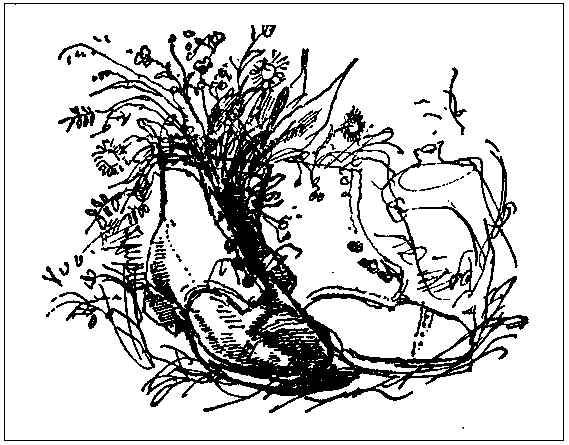 I stuck the fork into the ringing ground and followed her, like doom. We went a long way, to the bottom of the field, where a wagon stood half-loaded. Festoons of untrimmed grass hung down like curtains all around it. We crawled underneath, between the wheels, into a herb-scented cave of darkness. Rosie scratched about, turned over a sack, and revealed a stone jar of cider.
I stuck the fork into the ringing ground and followed her, like doom. We went a long way, to the bottom of the field, where a wagon stood half-loaded. Festoons of untrimmed grass hung down like curtains all around it. We crawled underneath, between the wheels, into a herb-scented cave of darkness. Rosie scratched about, turned over a sack, and revealed a stone jar of cider."It's cider," she said. "You ain't to drink it though. Not much of it, any rate."
Huge and squat, the jar lay on the grass like an unexploded bomb. We lifted it up, unscrewed the stopper, and smelt the whiff of fermented apples. I held the jar to my mouth and rolled my eyes sideways, like a beast at a waterhole. "Go on," said Rosie. I took a deep breath.
Never to be forgotten, that first long secret drink of golden fire, juice of those valleys and of that time, wine of wild orchards, of russet summer, of plump red apples and Rosie's burning cheeks. Never to be for gotten, or ever tasted again.
I put down the jar with a gulp and a gasp. Then I turned to look at Rosie. She was yellow and dusty with buttercups and seemed to be purring in the gloom; her hair was rich as a wild bee's nest and her eyes were full of stings. I did not know what to do about her, nor did I know what not to do. She looked smooth and precious, a thing of unplumbable mysteries, and perilous as quicksand.
"Rosie . . ." I said, on my knees, and shaking.
She crawled with a rustle of grass towards me quick and superbly assured. Her hand in mine was like a small wet flame which I could neither hold nor throw away. Then Rosie, with a remorseless, reedy strength, pulled me down from my tottering perch, pulled me down, down into her wide green smile and into the deep subaqueous grass.
--- From The Edge of DayGo to the full
reviewPrior Configurations
And Tipping Points
Harvey Molotch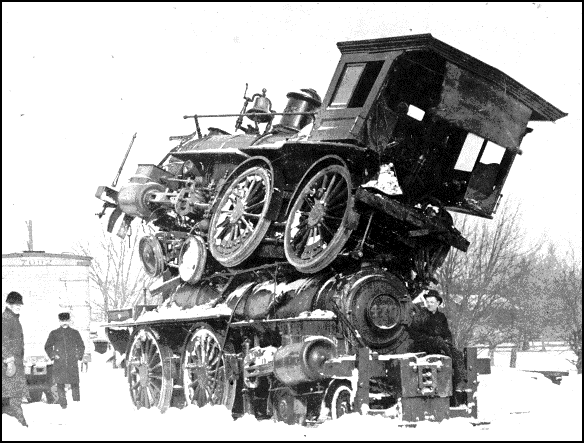 Scots' national dress, the kilt, was imposed on them by the hated English industrialists as substitutes for the traditional long dress coats that could catch in machinery. The now classic dress of Hawaiian women, the muumuu, arose from a heavy dose of coercion. Before contact with Europeans and North Americans, Hawaiian women wore little; subtly hued tapa bark cloth covered some of their lower bodies but left most of their breasts exposed, including the nipples. Nineteenth-century missionaries from the American East forced Hawaiian women to cover up, and because they lacked the fanciful tailoring and trims of the day, they created the simple muumuu. Eventually, the missionaries' prim prints (often little flowers) gave way to bright island designs of Hawaiian flora and the motifs of the pre-contact tapa bark. Now something of an "indigenous" tradition, the garment connotes tropical pleasure, worn commonly by Hawaiian women but also as summer clothing across the United States. Popular with locals as well as tourists, the Aloha shirt is similarly an amalgam. The basic tailoring --- simple square shape, no taper, no pleats, and worn over the pants --- comes from the shirts worn by Japanese laborers working the plantation economy. Japanese women made children's shirts from leftover kimono fabric, which is the source of the bright colors and silky texture. Application of the Hawaiian word "aloha" came from a Chinese clothing merchant in Honolulu who undertook the early commercial runs. Florals and fruit motifs, otherwise appropriate to women's (and children's) clothing, thus invaded menswear.
Scots' national dress, the kilt, was imposed on them by the hated English industrialists as substitutes for the traditional long dress coats that could catch in machinery. The now classic dress of Hawaiian women, the muumuu, arose from a heavy dose of coercion. Before contact with Europeans and North Americans, Hawaiian women wore little; subtly hued tapa bark cloth covered some of their lower bodies but left most of their breasts exposed, including the nipples. Nineteenth-century missionaries from the American East forced Hawaiian women to cover up, and because they lacked the fanciful tailoring and trims of the day, they created the simple muumuu. Eventually, the missionaries' prim prints (often little flowers) gave way to bright island designs of Hawaiian flora and the motifs of the pre-contact tapa bark. Now something of an "indigenous" tradition, the garment connotes tropical pleasure, worn commonly by Hawaiian women but also as summer clothing across the United States. Popular with locals as well as tourists, the Aloha shirt is similarly an amalgam. The basic tailoring --- simple square shape, no taper, no pleats, and worn over the pants --- comes from the shirts worn by Japanese laborers working the plantation economy. Japanese women made children's shirts from leftover kimono fabric, which is the source of the bright colors and silky texture. Application of the Hawaiian word "aloha" came from a Chinese clothing merchant in Honolulu who undertook the early commercial runs. Florals and fruit motifs, otherwise appropriate to women's (and children's) clothing, thus invaded menswear.Some criticize the hybrid process as "simplification" because it abstracts from something otherwise complexly authentic (a dashiki print from the pan-Africanism it represents) into a different style system that lacks those other particulars. The sin compounds when high people are selecting and appropriating for their own purposes, often for entertainment or amusement. But these borrowings go in all directions and under all sorts of auspices, with unpredictably rich results. Just as African music earlier influenced people, white and black, in North America and Europe to create jazz, music flows "back" to Africa in a "hypercreativity," yielding highlife music in Ghana, the new Afro-Arab music in Kenya, Caribbean reggae in the 1950s and ska more recently.
--- From Where Stuff Comes From
©2003RoutledgeGo to the full
readingFinding a Lion
In Your Bedroom A man-eating lion had taken up his quarters at a little roadside station called Kimaa, and had developed an extraordinary taste for the members of the railway staff. He was a most daring brute, quite indifferent as to whether he carried off the station master, the signalman, or the pointsman; and one night, in his efforts to obtain a meal, he actually climbed up on to the roof of the station buildings and tried to tear off the corrugated-iron sheets. At this the terrified baboo in charge of the telegraph instrument below sent the following laconic message to the Traffic Manager:"Lion fighting with station. Send urgent succour."Fortunately he was not victorious in his "fight with the station;" but he tried so hard to get in that he cut his feet badly on the iron sheeting, leaving large blood-stains on the roof.
A man-eating lion had taken up his quarters at a little roadside station called Kimaa, and had developed an extraordinary taste for the members of the railway staff. He was a most daring brute, quite indifferent as to whether he carried off the station master, the signalman, or the pointsman; and one night, in his efforts to obtain a meal, he actually climbed up on to the roof of the station buildings and tried to tear off the corrugated-iron sheets. At this the terrified baboo in charge of the telegraph instrument below sent the following laconic message to the Traffic Manager:"Lion fighting with station. Send urgent succour."Fortunately he was not victorious in his "fight with the station;" but he tried so hard to get in that he cut his feet badly on the iron sheeting, leaving large blood-stains on the roof.Another night, however, he succeeded in carrying off the native driver of the pumping-engine, and soon afterwards added several other victims to his list.
On one occasion an engine-driver arranged to sit up all night in a large iron water-tank in the hope of getting a shot at him, and had a loop-hole cut in the side of the tank from which to fire. But as so often happens, the hunter became the hunted; the lion turned up in the middle of the night, overthrew the tank and actually tried to drag the driver out through the narrow circular hole in the top through which he had squeezed in.
Fortunately the tank was just too deep for the brute to be able to reach the man at the bottom; but the latter was naturally half paralysed with fear and had to crouch so low down as to be unable to take anything like proper aim. He fired, however, and succeeded in frightening the lion away for the time being. It was in a vain attempt to destroy this pest that poor Ryall met his tragic and untimely end.
--- From The Man-Eaters of Tsavo
Lt. Colonel J. H. Patterson, D.S.O.
©2004, Lyons PressGo to the full
reading
Willy-Wagging At NASATravelling into space tied to a huge stick of dynamite, and falling back out of space like a huge breeze block, are inherently dangerous things to do. It may be that in time the shuttle's failure rate --- one crash for every 50 flights --- will come not to seem by the harsh standards of manned space exploration, outlandishly high. Nasa might do well to stress this riskiness, instead of acting all drawlingly, tranquillisingly confident. On past evidence, the interest of the relevant public, who tend not to forget that they are a paying public, fades very fast.After Apollo 11, interest in the moon landings fell off sharply. The near disaster of Apollo 13 caused a brief spike of interest, but by Apollo 16 people were calling the television networks to complain that the astronauts were getting in the way of I Love Lucy --- indeed, repeats of I Love Lucy.
Nasa failed to convey the drama and difficulty of what they were doing. One of the things that has become increasingly clear in retrospect about the Apollo missions is just how fantastically dangerous they were. Neil Armstrong and Michael Colliris --- the latter being the man who orbited the moon in the command module while the other two members of Apollo 11 walked on the surface --- both estimated the probability that the moon-walkers would return alive at about 50 per cent; a fact each of them kept to himself --- until afterwards. It's hard to imagine what the impact of Apollo11 would have been had Armstrong and Aldrin died.
Even on the leisurely time-scale envisioned by the current programme --- which doesn't have people returning to the moon until 2020 at the earliest --- the risks are going to be high, perhaps higher than a contemporary public is willing to accept, unless the risks are made part of the story. The fact that the gap between the last moon landings and the projected next ones will be half a century --- 1972 to 2020 --- makes it clear what an extraordinary thing Apollo was. You could argue, as many do, that it was extraordinarily pointless; but you can't deny that it was extraordinary. If two or three people hear you have a mobile phone, you're currently in possession of more computing power than those famous, much-photographed banks of Nasa hardware.
As for the trip to Mars, there won't be one for a very long time. Not unless the Chinese start to look as if they are going to do it first, and we have another space race. That would mean we were past the current imperial age and back in the one we miss so much, that of competitive willy-wagging on the part of two superpowers.--- John Lanchester in
The London Review of Books
21 September 2006Go to the full
reviewThe Year They Tried
To BlockThe Deputy
Warren HinckleEditorializing in defense of the play seemed futile and I decided that the only thing Ramparts could do to cripple the ecumenical conspiracy against Shumlin's play was to invent another ecumenical conspiracy --- this one on the side of The Deputy.I rang up Ed Keating [publisher of Ramparts] in Menlo Park and told him we were forming a committee! As much as I hate serving, on committees, I love to organize them --- if only for the joy of designing yet another letterhead. But, as I told a protesting Keating, there was no time for letterheads in this cause; the play was scheduled to open, or be derailed, in five days. Keating came to New York like a bowling ball running downhill. He skidded to a stop in the Waldorf Astoria, where I had acquired accommodations suitable for a Catholic literary quarterly, and demanded to know all about this business of a committee. He didn't seem certain we should go whole hog on The Deputy, pointing out, quite correctly, that it was "dramaturgically flawed."I diplomatically suggested to Ed that nobody in New York knew or cared who he was, but that he could become famous overnight if he, a Catholic publisher, headed a committee to defend the Pope-baiting play. Keating became convinced of the rectitude of our course, and we spent the next thirty-six hours on and off the telephone and dashing about Manhattan collecting religious men of good will and conscience who hadn't already given their due bill to the devil.We managed to find a few prominent Protestants, like John C. Bennett, of the Union Theological Seminary, who would stand on the side of the angels against the best wishes of their own religious establishments. But we drew a blank on Catholic clerics. I talked to one auxiliary bishop, highly regarded for his liberalism, who told me he would rather endorse a company that put the picture of Jesus Christ on packages of contraceptives than get involved on the side of the, author of The Deputy. We could not find a priest who would even answer the doorbell if he knew we were coming to ask him to put his name to such an infidel committee. In desperation I threw some Catholic laymen in the pot --- Gordon Zahn, the sociologist, and John Howard Griffin, the novelist, agreed to serve as Catholic window dressing in lieu of the priests who had their heads stuck in the sand up to their ordained rumps.
I also drafted some Jews who did not fear to serve --- the late Rabbi Abraham H Eschel, of the Jewish Theological Seminary, and Maxwell Geismar, the brilliant critic and literary historian --- a wonderful man about whom I cannot marshal enough superlatives, who, from our chance meeting during the white-heat controversy over The Deputy, was to become almost instantly my closest friend, confidant, foster father, and soul mate, and the most important intellectual influence on the developing Ramparts.
With a bit more padding, the "Ad Hoc Committee to Defend the Right of The Deputy to be Heard" was born but a day after its conception. In the finest tradition of Potemkin villages, the Committee barely had as many members as words in its cumbersome title, but that mattered not. A committee had been born; scholarly men of conscience had stood up to be counted; those of religious ilk who would suppress the truth were now to be squelched. Armed with press release, we marched out to do murder in the Cathedral.
Go to the full
reviewA Plague of LocustsThe insects were now full grown, and on a day they all began to move. Northeastward they went toward the desert --- slowly, very slowly, but steadily, hopping, hopping, rarely pausing, never turning to one side. A low rattle filled the air like the steady falling of fine sleet, and everywhere there was a faint, sickening odor. It was impossible to walk without stepping on the creatures.On the morning when the grasshoppers began to move the writer was at work in a round native tent of felt, with the top, perhaps 30 inches in diameter, open to admit light and air. When the grasshoppers reached the tent not one of them turned aside. Straight up the wall they crawled, and straight across the top until they came to the opening. There they paused a few minutes and then jumped blindly.
One after another they landed on the table, which was necessarily placed under the opening for light. Tap, tap, tap, they fell at intervals of a few seconds until it soon became impossible to work. When they righted themselves after falling to the floor, they always turned in the original direction, hopping across the floor, climbed the wall and the inside of the roof of the tent until they reached the opening at the apex, and were able to continue their interrupted journey.
Near our tents flowed a brook about three feet wide, which was used for irrigation. When the grasshoppers reached it they paused a moment, and then, urged by the crowds coming up from behind, jumped into the water and struggled for the other bank. The majority reached it after being carried down a few hundred feet. On the bank they rested in swarms until their wings were dry, and then hopped steadily on.
Many of the weaker insects, however, never got across the stream alive. They were carried down to the point where the brook was distributed over the fields, and there were deposited in great heaps, which soon began to emit a most noisome odor.
The coming of the grasshoppers had a disastrous effect upon our work of excavation. The insects jumped into the diggings in hordes, falling over the perpendicular edges in a steady stream. Crossing the bottom of the excavations in their usual persistent manner, they tried again and again to climb the steep walls, only to grow weary before reaching the top, and so to fall back once more. Thus they piled up to a depth of a foot or two in every excavation.
At first we tried to have them shoveled out, but the accumulation of a single night could scarcely be removed in a day. As most of our work was finished, we merely shoveled earth into the pits to cover the loathsome, dying mass of insects. Once in the bottom of a deep, round well sunk in exploring the ruins, we found a large snake buried in a seething, squirming, ever-deepening mass of living death from which his writhing head alone protruded.
There was one excavation which we determined not to abandon at once. As quickly as possible, which was not till the end of the second day, we procured cheese-cloth and stretched it across the top of the excavation. The grasshoppers crossed by legions, their shadows darkening the cloth, and the sound of their hopping was like the patter of heavy rain on a roof....
The Turkoman laborers were clad in baggy white cotton trousers of the common full Turkish type, worn without underclothes. To stand in such garments amid the grasshoppers and shovel them into buckets or bags while the creatures crawled everywhere must have been almost unendurable. Every few minutes the men stopped to remove the clinging insects from inside their clothes. Nevertheless not only did those who were at work keep on faithfully, but scores of others, seeing that the grasshoppers had consumed their sustenance for the year, pleaded piteously for an opportunity to earn something to support their wives and children.
The visitation came to an end at length, and the grasshoppers passed on into the desert. The land was left reaped --- consumed, as it were, by fire. There was a strange stillness in the air, and though our tents were pitched in what had been the fruitful grain fields of an oasis, we seemed to be in the midst of the great desert.
--- "Life in the Great Desert of Central Asia"
August 1909
By Ellsworth Huntington
